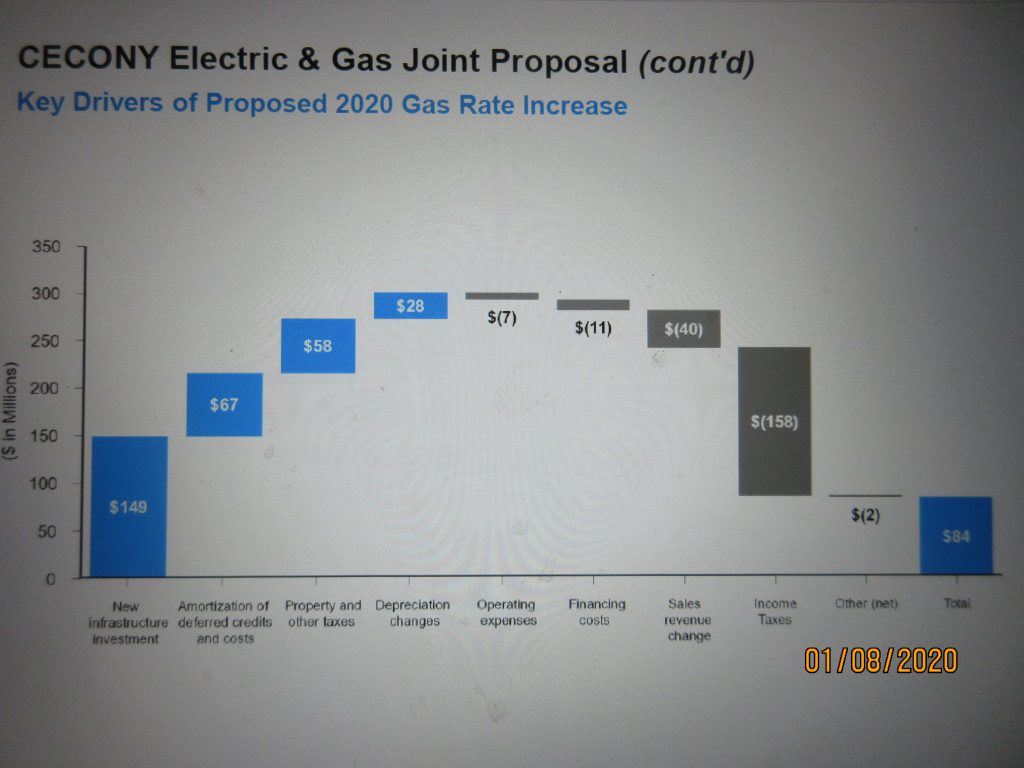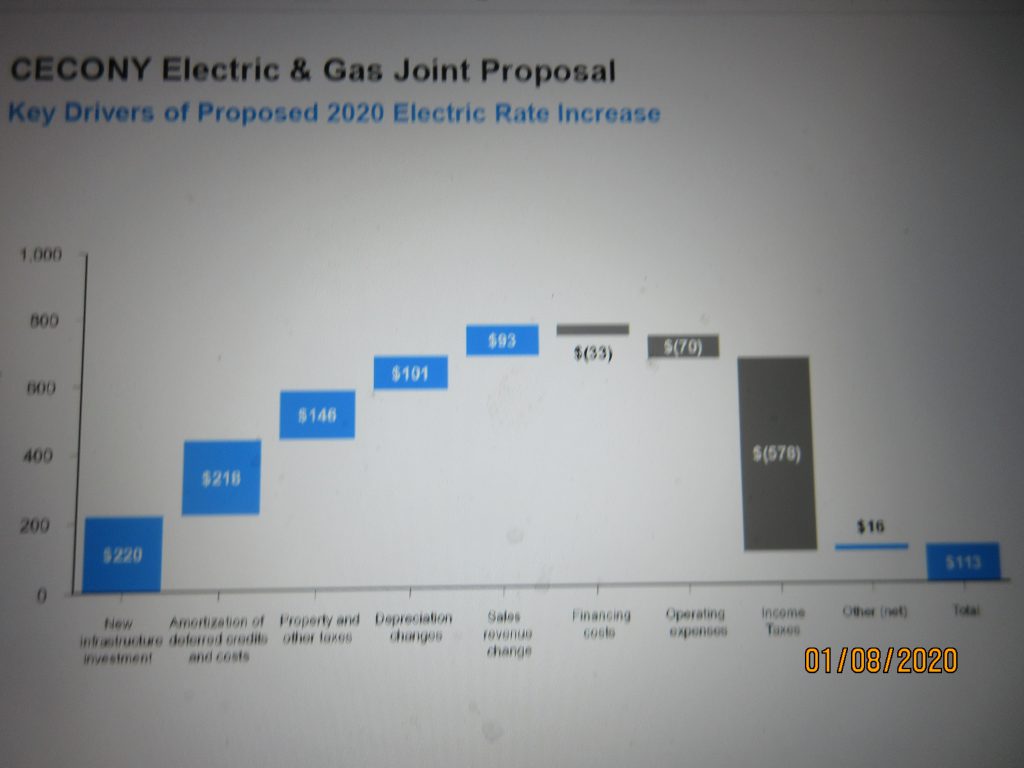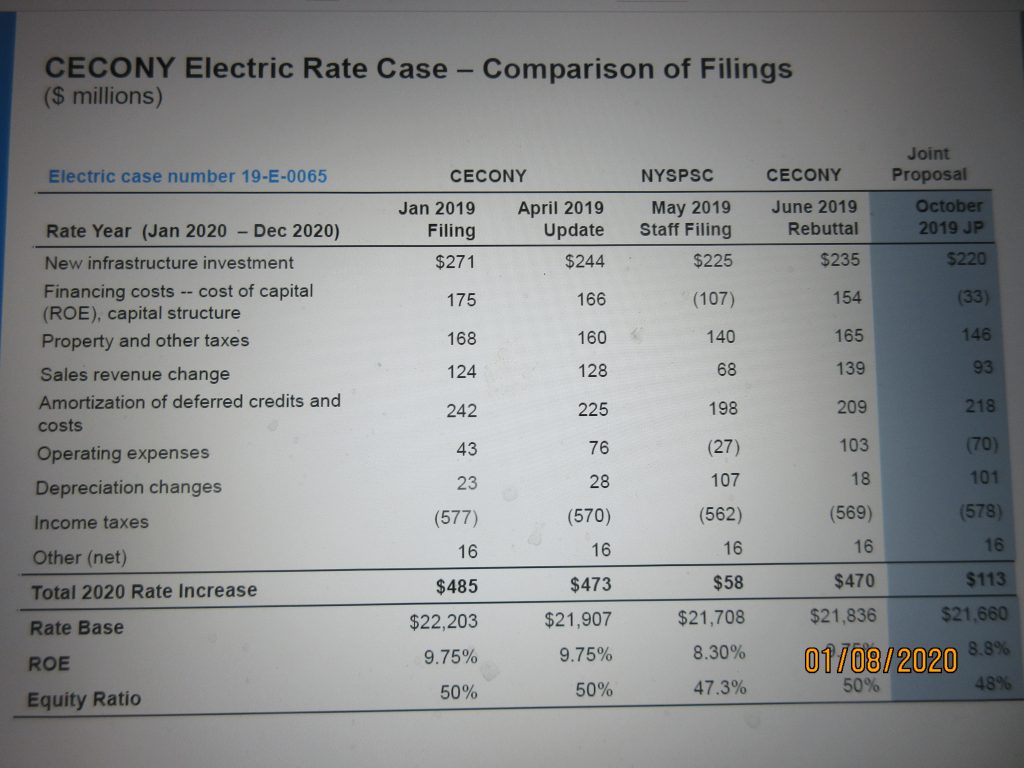Hits: 31
WPCNR THE POWER STORY. Statement from Consolidated Edison, with reporting by John F. Bailey . January 16, 2020:
The Public Service Commission approved delivery charge increases submitted by Consolidated Edison today, that will apply beginning , according to this statement from Con Ed:Jan 1 through Jan 31 bills. Con Ed released this statement:
“The three-year investment plan approved today is essential to helping New York State achieve its clean energy goals, as well as to continue providing safe and reliable service to our customers.
In addition to investing about $3 billion each year for electric and gas service reliability, the plan provides major funding for clean energy programs and energy efficiency.
We will be encouraging customers to choose alternatives to fossil fuels with incentives and rebates for geothermal heat pumps, energy efficient appliances and electric vehicle chargers. The plan provides $700 million over the next three years for energy efficiency programs that are some of the most cost-effective ways for customers to reduce bills.


We will also develop a climate change implementation plan to manage climate change risk going forward.”

WPCNR contacted Dan Welsh Program Director of Westchester Power (the WPCNR electricity supplier) to make sense of the nomenclature in the above categories and what they mean in arriving at the new approved delivery charges.
Welsh told WPCNR “The Financing, I believe, refers to the return on equity (ROE). Basically, private investors in Con Ed get a negotiated return on their investment. That’s the nature of things for Investor-Owned Utilities. “(WPCNR notes this appears to mean the financing costs of the infrastructure improvements are deducted from Consolidated Edison’s profit as an expense)
Welsh pointed out “I also read that the anticipated tax savings (from the national tax act) are netted out of the total calculation to the benefit of the (Con Ed) ratepayers by reducing the total requested increase.
It is interesting to note Con Ed is claiming reduced revenues. Welsh comments: “I guess there could have been a net reduction in usage — that was the case when the economy slowed. Maybe one other explanation (for the decreased revenues) might be that “direct costs”, netted out from sales have gone up (if you sell widgets and widget part costs go up, those direct costs, Cost of Sales, could be deducted to get net sales revenue, distinct from operating costs noted separately).”
Welch said “deferred credits and costs is mysterious. Maybe they are trying to recoup costs that were captured in another filing.”
“Depreciation Costs would go up because of investments in depreciable assets made in the previous period. Sounds like something pretty much baked into things already,” Welch observed.
“Income taxes — these are the corporate income taxes. I guess since this is oriented towards the SEC filing and the Return on Equity is post tax, you include the tax impact,”
WPCNR observes how the expenses deducted from the Delivery Charge calculation, save Con Edison on taxes.
The Consolidated Delivery Charge for 2020 will go up $5 a Month for the typical customer, depending on hours used…that is approximately$60 more a year for a an electric residential customer using the Green Energy Rate supplied by Constellation New Energy which averages 550 Kilowatt hours a month.
WPCNR could not find a typical natural gas bill on the Con Ed website past 2016. The Natural gas residentiL customer to figure their new annual delivery charge to add 14.5% to your monthly Delivery charge rate in December to get your average monthly cost of the increase.
